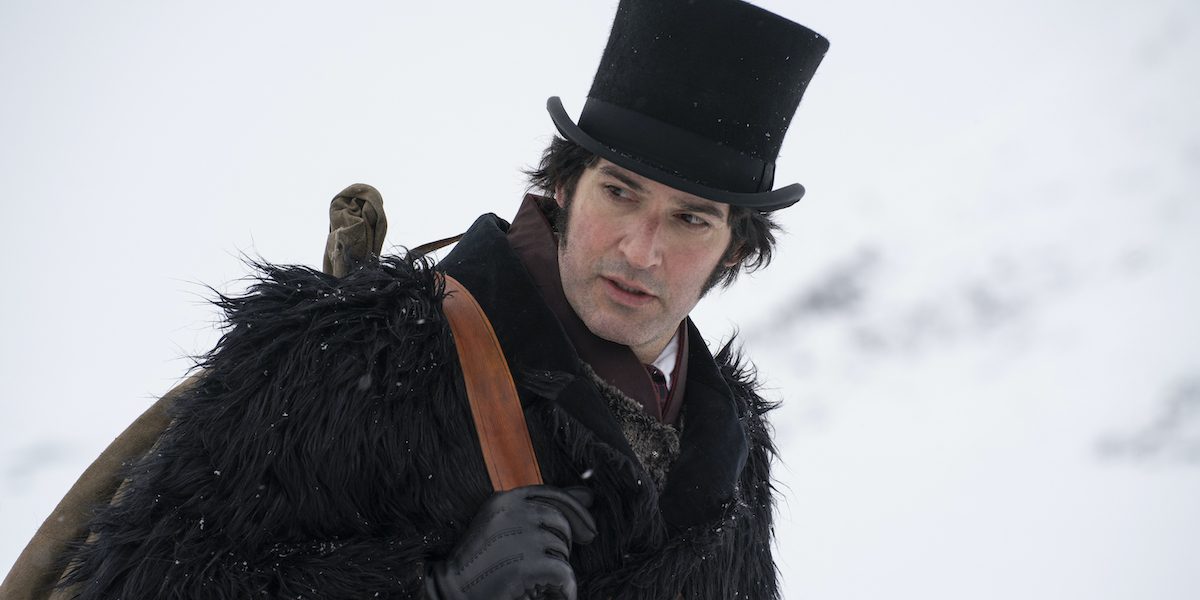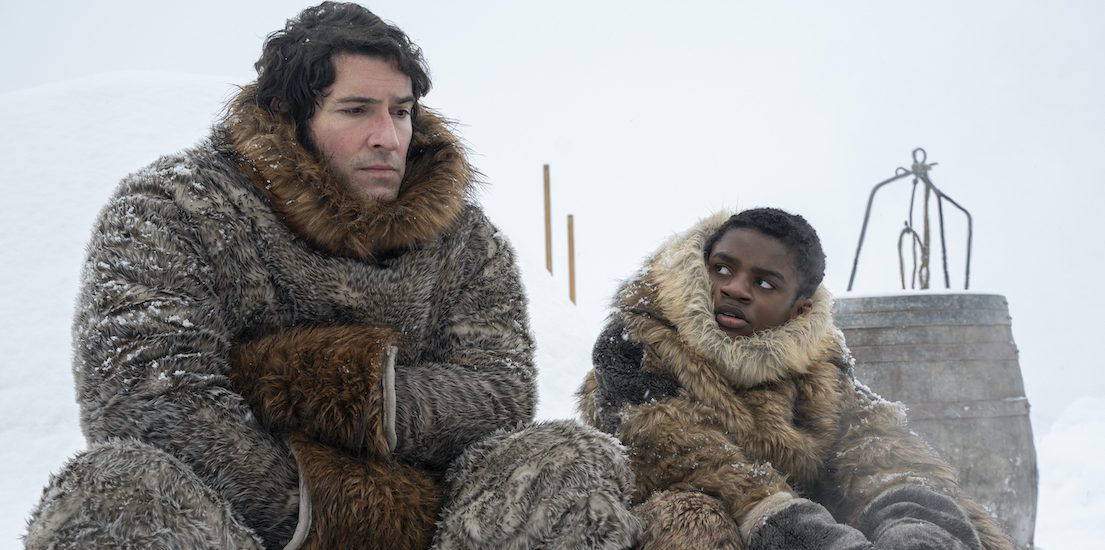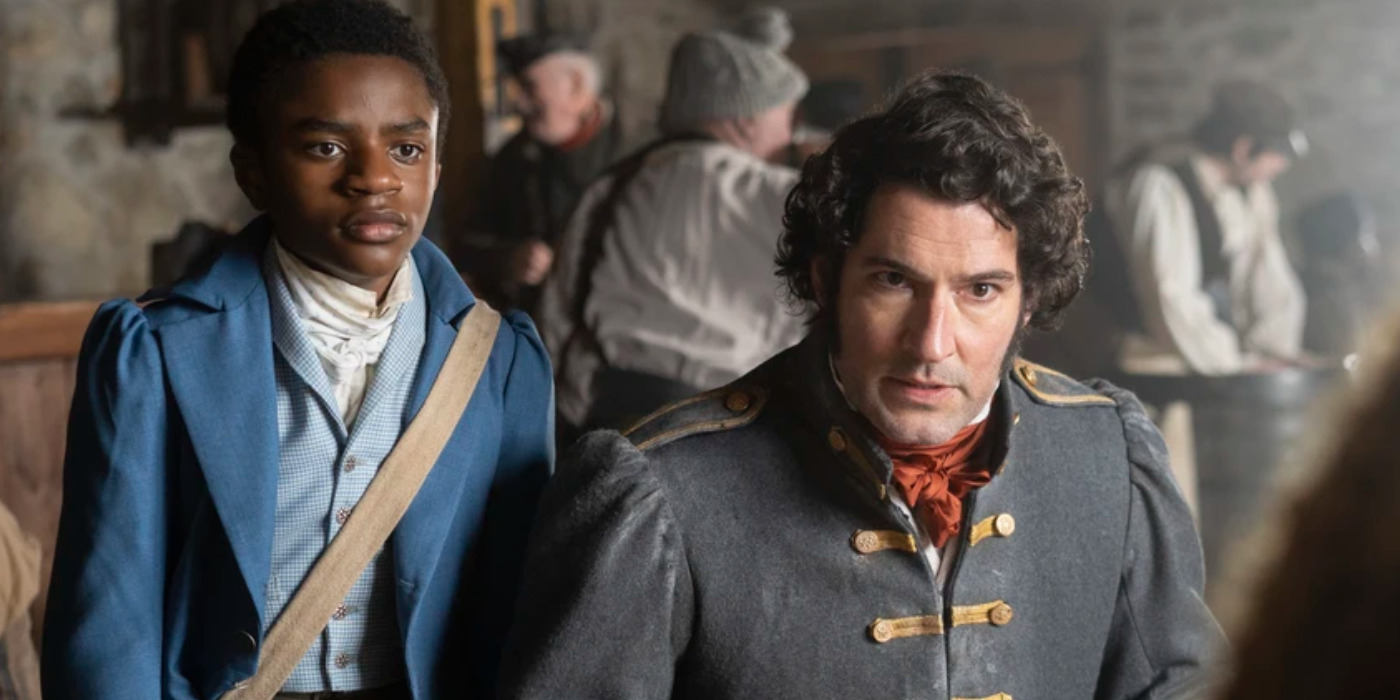In ‘Washington Black,’ Christopher Wilde, better known as Titch, plays a crucial role in the titular protagonist’s narrative journey. The idealist scientist crosses paths with a young braniac on his brother’s plantation fields, where Wash is bound as a slave worker. Unlike his callous brother, Erasmus, Titch recognizes the young boy’s talent and takes him in as his assistant. Together, the duo works on their ambitious invention: a flying machine to carry men across the skies. That is, until an unexpected disaster drives the pair out of Barbados, hurtling them into a whirlwind adventure.
Years down the line, a 19-year-old Wash has settled in Nova Scotia, looking for a way to outrun his illustrious past. Within the show’s historical drama narrative, Titch’s character remains an enticing element, wearing many socio-political and scientific hats of the era. However, is there any real-life connection behind his on-screen character?
Christopher “Titch” Wilde is a Work of Author Esi Edugyan’s Imagination
‘Washington Black’ charts a narrative of historical fiction, in which fictionalized characters and plot points inform the socio-politically relevant themes of the story. As a result, even though the historical circumstances and contexts around Wash’s character remain rooted in reality, the details of the protagonist’s story themselves retain little to no basis in real life. Thus, Christopher Wilde, aka Titch, shares the state of the narrative and remains confined within his fictionality. Much like other aspects of the show, the character can be traced back to the 2018 novel ‘Washington Black’ by Esi Edugyan, which serves as the source material for Selwyn Seyfu Hinds’ adaptation.

For Edugyan, the inspiration to create a story about a young boy’s path toward freedom came from Jorge Luis Borges’ short story, ‘The Improbable Impostor Tom Castro.’ The story details the real-life tale of Arthur Orton, an Australian butcher who claimed to be the previously presumed dead heir of the wealthy noble family, the Tichborne. Eventually, Lady Tichborne sent Andrew Bogle, a former slave-turned-servant, to verify Castro’s claims of being Robert Tichborne. “It was so outlandish I assumed [Borges] made everything up, including the character of Andrew Bogle,” Edugyan told Quill and Quire. However, some research into the case revealed its biographical reality.
Ultimately, Edugyan found herself intrigued by Bogle’s character, his unique perspective, and journey. Eventually, as she started working on a story influenced by the incident, the framework of the Tichborne case fell away, leaving only Bogle’s spirit to remain attached to Wash’s characterization. Therefore, even though Titch has no direct real-life counterparts, we can conclude that a part of his characterization emerged from the Tichborne case. Notably, his friendship and mentorship with Wash present a nuanced depiction of the complicated relationship that exists in a dynamic with inherent power imbalance. Thus, some sense of similarity remains between Titch’s thematic purpose in the protagonist’s story and the real-life dynamic between Bogle and Castro.
The Real-Life Influences Behind Titch’s Character
Titch’s complicated relationship with Wash defines a notable part of his role in the story. Yet, the inventor offers various other interesting storylines, especially in relation to the tale’s period setting. Titch is introduced in the narrative as a scientist, a naturalist, and an abolitionist. He dreams of fulfilling his father’s scientific fancies by creating a flying vessel, which is essentially a hot air balloon run on a steam engine. These aspects of his identity ground him in the story’s historical setting, allowing room for realism and authenticity. In her literary work, Author Esi Edugyan mined inspiration for this eclectic character from a number of real-life personalities.

For instance, Edugyan equipped English abolitionist Thomas Clarkson as a key inspiration for Titch’s anti-slave trade philosophies. In doing so, she imbued the fictional scientist with realistic and era-appropriate political morals and ethics. Likewise, writings of German naturalist Alexander von Humboldt and American journalist/historian Adam Hochschild were also farmed for influence. Additionally, the scientific aspects of the tale, which often pitched Titch at its narrative center, found realism through works such as Richard Holmes’ ‘Falling Upwards,’ a book that details hot-air ballooning. Ultimately, all these real-life people culminated into an overarching inspiration for the character. Even so, while these off-screen personalities shape Titch’s ideologies, beliefs, and science, their influence over the fictional scientist remains minimal.
Read More: Washington Black Ending Explained: Why did Titch Abandon Wash?


